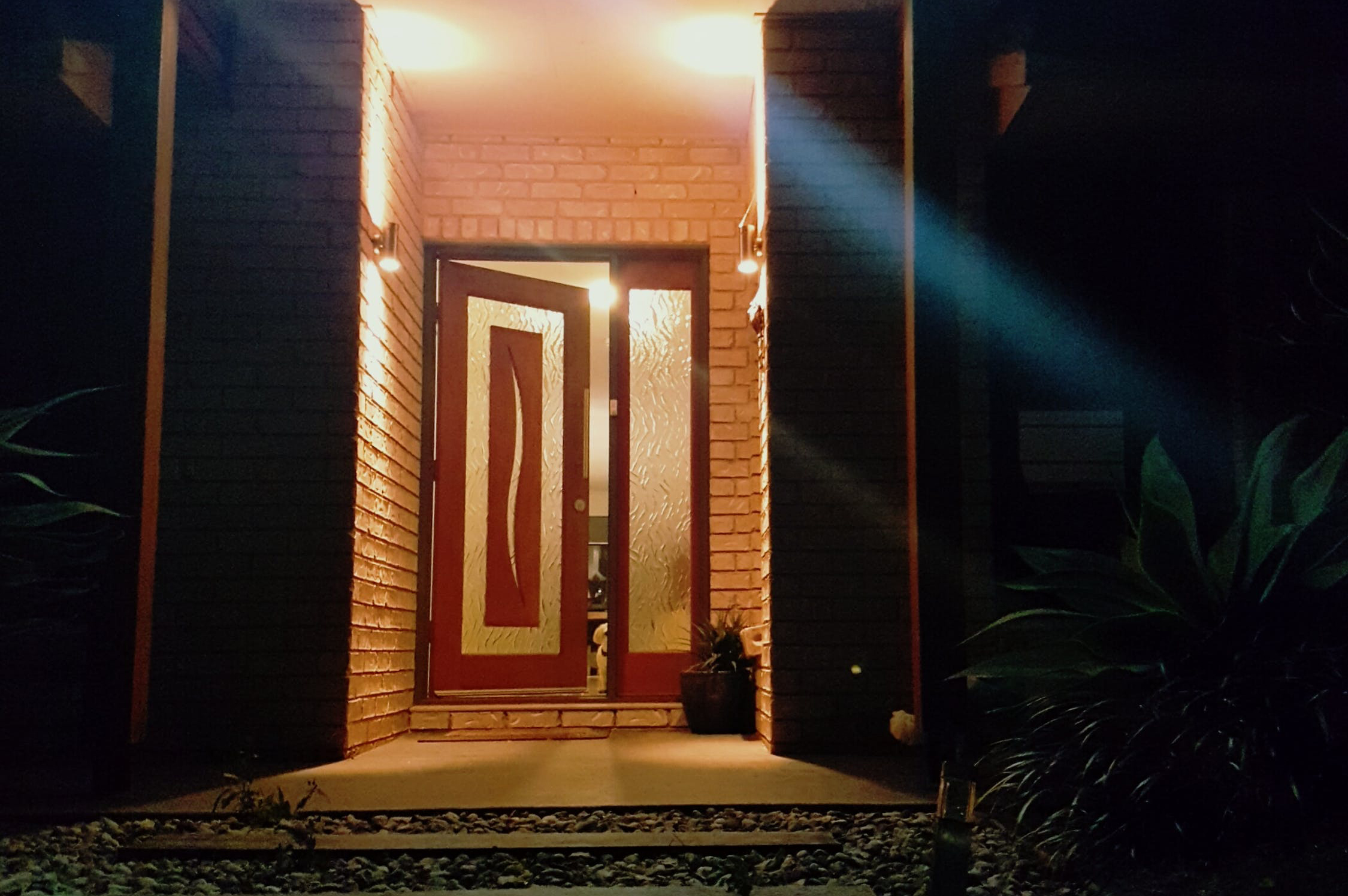Jodi Paloni
My brother–who wasn’t my real brother, but the boy my stepfather coached in wrestling and let sleep on the couch in the den because the boy’s parents died in a car fire–used to invite my sister and I to watch him while he pumped iron in our garage. His name was Lynyrd after a rock band from the seventies. He was fourteen when he moved in. For three years, he slept on the couch.
“Family can mean different things to different people,” Al announced when social services officially named him the foster parent. “Lynyrd’s like a son to me.”
At the time, I had been lugging a dictionary everywhere I went. I read definitions out loud to my family. “‘Foster, verb. To bring up.’ But it can also mean, ‘to encourage or promote the development of something.’”
Al nodded and patted my back. “That’s right, Sheila. Good girl.”
I felt like I had been chosen for someone’s team.
Al believed in all of us sitting down together for dinner, his one strict rule. “Statistics don’t lie,” he said. “Eating dinner as a family lowers the risk of deviant behaviors.” He twirled his fork in the air as if casting a spell.
I saw my sister, Dorianne–who was really my sister–look at Lynryd through her eyelashes, thick with blue mascara. Lynyrd stalked his food. Our mother read the paper, her dinner like a sculpture on her plate. I wondered if reading at the table counted towards lowering risks. Al once said that conversation made for quality time, so I read the definition for deviant out loud. Lynryd looked up at me. Lasagna lumped in my stomach. Then he looked at my mother.
I knew there were things that were not said. Things people thought to themselves, and things people felt. Feelings crowded the table, pride, hunger and sadness, confusion, feelings that smoldered; I felt them all, everyone’s, until I could suffocate. I was empathic, a noun I had discovered in my dictionary. I believed that these were natural feelings, part of family love.
In the garage, I’d catch Dorianne sneaking looks at Lynyrd out of the corner of her eye as she flipped through CDs, trying out songs with a good beat for pumping iron, but I wasn’t afraid to sit on the old mattress and stare at the way Lynryd’s flesh quivered and flexed, glowing with sweat. I liked the smell of him, apple cider gone sour and powdered antiperspirant. I liked Dorianne’s perfume, Flight. I liked the dizzy air, fumes wafting from the gas can on the floor beside me.
One night, I wanted to read on the couch, but our mother told me I couldn’t leave Dorianne alone in the garage with Lynryd. We were too old for that now. If we wanted to go out there with him, we had to go together. Later, I found out why.
I left them for a few minutes to get a Popsicle. When I slipped back in, Lynryd lay flat on the bench press with Dorianne spotting him from above his head as usual, but this time, the barbell rested on the rack and Lynryd’s hands were in Dorianne’s hair, pulling her close, telling her a secret. Then I saw his fat grey tongue in her ear. I nudged the gas on the cement floor can to make noise. Dorianne went back to the CD player.
It could have been worse. I could have seen Lynyrd and Dorianne doing what I saw Lynryd doing with my mother late one night on top of the sheets on the couch, weeks later, when I stole downstairs. I used to visit Lynryd’s room, too. Not because I wanted him to touch me in the dark, but because I had never had a brother and I strived to foster real feelings for him. When I watched him sleep, I saw goodness. I felt protected. He was beautiful. A king.
Yep, it could have been much worse. When Al found out about my mother, blew a gasket, and kicked his son–who wasn’t really his real son–out of the house, the fire Dorianne started in the garage could have burned down the neighborhood. Luckily, I felt the flames before anyone smelled the fire. I felt something else, too, something precious that lingered in the cloying atmosphere of the garage. Something I sensed, months later, whenever I went out there to sit on the new tool bench and listen to music as loud as I wanted. Something elemental. Rich. Something to this day, I cannot define.
Jodi Paloni has an MFA from Vermont College of Fine Arts. Her fiction appears in Carve (where she placed second in the 2012 Raymond Carver Short Story Contest), upstreet, and Spartan. Essays and reviews are up at Hunger Mountain, Contrary Magazine, and New Pages.

